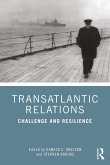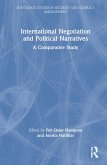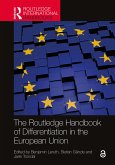This book explains how and why the transatlantic relationship has remained resilient despite persistent differences in the preferences, approaches, and policies of key member states.
It covers topics ranging from the history of transatlantic relations, North Atlantic Treaty Organization and security issues, trade, human rights, and the cultural sinews of the relationship, to the impacts of COVID-19, climate change, think tanks, the rise of populism, public opinion, and the triangular relationship between the United States (US), Europe, and China. The book also conceptualizes resilience as a quality arising from myriad forms of interdependence. This interdependence helps shed light on the Atlantic partnership's capacity to withstand serious disagreements, such as those that occurred during the Reagan, George W. Bush, and Trump presidencies.
With a principal focus on the US and Europe, the contributors to the volume also employ Canadian case studies to provide a unique and useful corrective. This book will interest all intermediate and senior undergraduate as well as graduate courses on relations between the US and Europe, American foreign policy, and European Union foreign policy. A specialist readership that includes academic and think tank researchers, policy practitioners, and opinion leaders will also benefit from this timely volume.
It covers topics ranging from the history of transatlantic relations, North Atlantic Treaty Organization and security issues, trade, human rights, and the cultural sinews of the relationship, to the impacts of COVID-19, climate change, think tanks, the rise of populism, public opinion, and the triangular relationship between the United States (US), Europe, and China. The book also conceptualizes resilience as a quality arising from myriad forms of interdependence. This interdependence helps shed light on the Atlantic partnership's capacity to withstand serious disagreements, such as those that occurred during the Reagan, George W. Bush, and Trump presidencies.
With a principal focus on the US and Europe, the contributors to the volume also employ Canadian case studies to provide a unique and useful corrective. This book will interest all intermediate and senior undergraduate as well as graduate courses on relations between the US and Europe, American foreign policy, and European Union foreign policy. A specialist readership that includes academic and think tank researchers, policy practitioners, and opinion leaders will also benefit from this timely volume.
"Challenges to trans-Atlantic relations didn't begin (or end) with the Trump presidency. This book applies historical and contemporary perspectives in addressing an urgent question: how resilient are those relations? Policymakers and researchers striving to understand what the future could bring will find this book helpfully thought-provoking."
Roy Norton, Balsillie School of International Affairs, Waterloo, Canada.
Roy Norton, Balsillie School of International Affairs, Waterloo, Canada.








